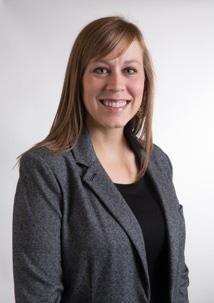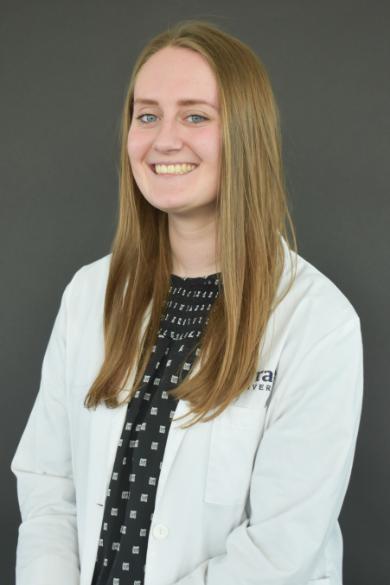Pharmacy Spotlight
Meet Dr. Lynn Kassel. Dr. Kassel is an Associate Professor of Clinical Practice for Drake’s Doctor of Pharmacy program. In addition to teaching at Drake, Dr. Kassel is also a graduate of Drake's pharmacy program! Now, she teaches in the classroom and in experiential learning to ensure that her students are well-prepared for their future careers!
 Name: Lynn E. Kassel, PharmD, BCPS
Name: Lynn E. Kassel, PharmD, BCPS
Dr. Lynn Kassel is an Associate Professor of Clinical Practice at Drake University College of Pharmacy & Health Sciences, and she holds an Acute Care Pharmacist position with the MercyOne West Des Moines hospital in West Des Moines, Iowa. She is a graduate of Drake and has completed two years of residency training, with a specialty in Critical Care Pharmacy. She has been a faculty member at Drake for 5 years but held an academic position at another institution for 4 years prior. Her current practice site allows interdisciplinary teamwork, which is one of Dr. Kassel’s passions, as well as the ability to help direct pharmacotherapy decisions in collaboration with a surgery team. She currently teaches an elective course (Phar 101: Topics in Cardiology) as well as within the Therapeutics course series. Most of Dr. Kassel’s teaching comes from working with P4 students on their Advanced Pharmacy Practice Experiences (APPEs) at the hospital.
What role do pharmacists have in healthcare? How do they contribute to the health and well being of people?
My role as a pharmacist is to help ensure optimal therapy (medication and non-medication) for patients. Through collaborating with the surgeons at my hospital, I am able to directly impact patients' medications lists and optimize their regimens: minimizing drug interactions, ensuring correct dosing and dose timing, as well as eliminating unnecessary medications. I often draw upon the training that makes a pharmacist unique (pharmacology, pharmacokinetics, pharmaceutics) in working with students to highlight that while prescribers and other health care professionals have a lot of knowledge, we are the medication experts and can bring a lot to the table.
What do you love about being a pharmacist? What first attracted you to the profession and what has kept you engaged throughout your career?
I like the variety of what I get to do every day and who I get to help. I provide care to patients every day, but I get to work with antibiotics to anticoagulants, medications for blood pressure, cholesterol, arrhythmias, gastrointestinal complaints. It really runs the gamut of options available. I learn something new every day too, so I continue to feel challenged and can grow in my role on the health care team.
Growing up, I did not want to be a pharmacist. Both of my parents are pharmacists, and I would often say that I did not want that. At some point, I changed my mind, and I am so grateful for that! While there are three pharmacists in my immediate family, we all do something different. I was drawn to the fast pace and the data-driven decision-making in the acute care (i.e., hospital) environment. I like the challenge of critically ill patients and the problem-solving that is needed to care for them. I like the diversity of my day and all of the aspects of my job as a faculty member, but my favorite thing is working with students. I learn so much from them and hope that they walk away from rotation experiences with me a more confident and competent pharmacist.
Why did you choose to teach at Drake?
It is the same reason I chose Drake as a student: the people. I knew as a student that I would be known to the faculty members and have a mentoring relationship with them. Those are the same reasons that I continue to come back to Drake each day: I know the students; I learn from the students; I work closely with students on a number of projects. The people at Drake are truly special, and I am so lucky to be a part of this great experience.
How does the Drake pharmacy program prepare students to achieve their goals? What are some specific aspects of the program that stand out?
Drake is invested in its students, and we want our students to succeed. At the end of this program, students become practitioners to take care of other humans. Drake offers a variety of opportunities (student organizations, leadership opportunities, research possibilities) as well as unique student experiences to prepare students for these roles.
What is one piece of advice you would give to a student who is interested in pursuing a career in pharmacy?
Why not? Pharmacists can do so many things after obtaining a Doctorate in Pharmacy, and as the role of a pharmacist shifts and is changing, it is an amazing time to help shape that change.



